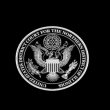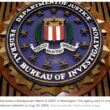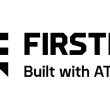NENA alters D Block position
The National Emergency Number Association (NENA) yesterday said it would support public-safety efforts to reallocate the 700 MHz D Block for first-response usage if a sustainable funding model is established at the same time.
“NENA is prepared to join our colleagues in public safety on the proposed spectrum reallocation effort, if, in turn, that effort also includes an identifiable funding component,” NENA President Craig Whittington and CEO Brian Fontes stated in a letter released yesterday to eight other public-safety organizations, all of which support public safety getting the D Block spectrum.
During the past several months, NENA officials have expressed concern that public-safety organizations have asked federal lawmakers to sponsor legislation dedicating the D Block — currently slated for commercial auction — to public safety as part of the spectral platform for a nationwide wireless broadband network for first responders, but these efforts have not included an adequate funding to make such a buildout realistic. Instead, NENA has made multiple proposals designed to help address the funding issue, none of which included allocating the D Block to public safety.
NENA’s position has been the subject of considerable debate within the public-safety community, with many first-responder officials expressing concern that Congress would be less likely to reallocate the D Block if key organizations do not present a united front on Capitol Hill about the matter.
Representatives of NENA and the eight public-safety organizations — the Association of Public-Safety Communications Officials (APCO), Major Cities Chiefs Association (MCC), International Association of Chiefs of Police (IACP), International Association of Fire Chiefs (IAFC), Major County Sheriffs’ Association (MCS), Metropolitan Fire Chiefs Association (MFCA), National Emergency Management Association (NEMA) and the National Sheriffs’ Association (NSA) — met Friday in New York. Initial reports from the meeting indicated that each organization was given an opportunity to clarify their positions on the D Block and other broadband issue but none of the representatives expressed a change in its D Block position.
That changed with the release of NENA’s letter yesterday, which largely resulted from the “healthy and good discussion” between the public-safety organization representatives on Friday, Fontes said.
“For us to say that these folks put forth a valid argument that they need additional spectrum and they need NENA to support it, if they believe having all of us agree to it is somehow move the needle, then so be it — as long as they also agree that funding … needs to be addressed in the legislative effort,” Fontes said.
NENA’s action was not entirely surprising to Charles Dowd, deputy chief for the New York City Police Department, which hosted Friday’s event.
“As we worked through the day, it became clear that NENA and the rest of the groups were aligned a lot closer than we thought we were at the beginning of the day,” Dowd said. “It’s great to hear that NENA has joined the group, so to speak.”
Dowd said he does not believe the other eight organizations would have any difficulty supporting NENA’s notion that a D Block reallocation must be accompanied by a funding solution.
“It was very encouraging,” Dowd said. “We’re glad that [NENA officials] support a reallocation of the D Block. We support — and have gone on record as saying — we support the need for funding for the buildout. … This is not something we were in disagreement about.”
Of course, to ask Congress or other for funding, an accurate estimate of how much money is needed, Dowd said. Public-safety organizations are working to provide such an estimate, he said, noting that FCC approval of public-safety waiver requests would allow the establishment of testbeds that would help verify such cost estimates.
Whether public safety will be successful in its efforts to secure funding or the D Block spectrum is questionable — Fontes said getting the two points decided before the FCC has to establish a D Block strategy based on current law would require a “pretty Herculean” effort — but at least public safety will be united in its position, Dowd said.
“That’s the big takeaway from this — there really isn’t anybody in public safety right now that doesn’t see this need [for the D Block spectrum] and the need for funding,” he said. “Now, we can truly speak with one voice.”

















